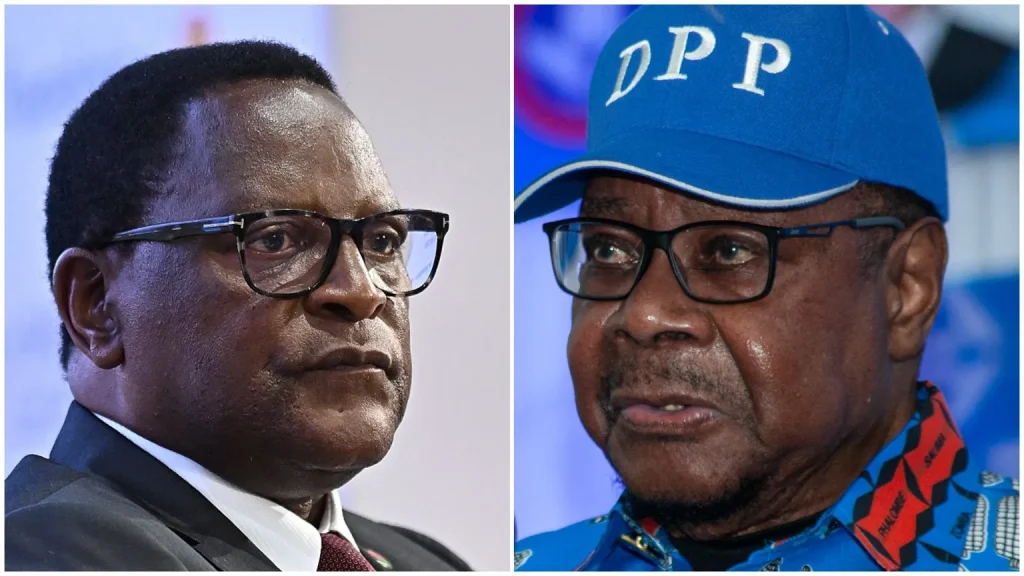Malawi is preparing for a decisive election on 16 September 2025, with voters set to choose a president, members of parliament, and local councillors in what many see as the most consequential vote since the country’s historic 2020 re-run.
More than 7.2 million registered voters will take part in the polls. This year’s presidential race features 17 candidates, though the contest is widely expected to be a showdown between current President Lazarus Chakwera and former leader Peter Mutharika.
A Repeat Battle
The two men have a long electoral rivalry. Mutharika beat Chakwera in 2014 and was declared winner again in 2019, but that result was annulled by the courts due to widespread irregularities. Chakwera went on to win the court-ordered re-run in 2020 with 59% of the vote.
Chakwera, 70, has highlighted infrastructure projects, including the revival of train services and nationwide road construction. Yet his presidency has been overshadowed by economic decline and persistent corruption allegations.
Mutharika, 85, is positioning himself as the candidate who can “fix the economy,” citing the current 27% inflation rate as proof of mismanagement under Chakwera. However, his age and health remain points of speculation, and his previous administration also faced graft accusations.
Other notable contenders include former president Joyce Banda, Vice-President Michael Usi, and former reserve bank governor Dalitso Kabambe.
What Matters to Voters
The economy looms largest. Malawi, already among the world’s poorest nations, has endured multiple crises: Cyclone Freddy in 2023, a devastating drought in 2024, currency devaluation, and recurring shortages of fuel and electricity. Rising food prices have driven many Malawians deeper into poverty.
Corruption remains another pressing concern. Chakwera promised to “clear the rubble of corruption,” but critics point to dropped charges against high-profile figures and the absence of a permanent anti-corruption bureau head as setbacks. Previous administrations, including Mutharika’s and Banda’s, also struggled with graft scandals.
Adding to the uncertainty is the memory of Vice-President Saulos Chilima, who died in a 2024 plane crash. His popularity among young voters could have reshaped this year’s election, and lingering doubts about the crash have become campaign fodder for opposition groups.
Democratic Hopes, Lingering Fears
After the 2019 election annulment, Malawi introduced a 50%+1 rule, requiring presidential candidates to win an outright majority to avoid a run-off. With so many candidates, analysts say a second-round vote is highly likely.
While the judiciary’s past actions bolstered faith in the system, recent violence has raised alarms. In June, protesters demanding the resignation of electoral officials were attacked by masked men wielding machetes, deepening concerns about political intimidation.
Timeline
• 16 September – Presidential, parliamentary, and local elections
• By 24 September – Presidential results expected
• By 30 September – Parliamentary results announced
Observers warn that Malawi’s fragile economy and political divisions mean the outcome will shape not just leadership but the future stability of the nation.



